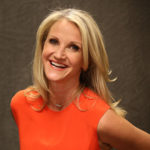Our family recently spent two weeks exploring, unwinding and bonding in Cambodia. The remarkable journey created sensory overload and inspired one important observation: Kids and adults handle new experiences very differently. Kids ask a lot of questions. Adults, not so much.
The most popular destination in Cambodia is Siem Reap, home of Angkor Wat, a city built in the 12th century. (Think Lara Croft – Tomb Raider’s massive gray temples engulfed with tree roots.) Our first morning, we were in a group of a dozen adults and nine kids wandering the grounds, climbing the steps and following our guide into the main temple. He barely uttered a sentence about Angkor Wat’s history before my 11-year-old, Kendall, raised her hand. “Did anyone live here?”
“Good question; no. ‘Wat’ is the Khmer word for temple, and ‘Angkor’ is the region you are in. So it was called Angkor Wat. It was built so the king could pray here.”
We all stared at Kendall as more questions poured out. “So where did the king live?”
“In the palace up the road.”
“Who did he live with at the palace?”
“His wife, his son, his servants and about 500 concubines.”
“What’s a concubine?”
“A girlfriend.”
“Did his wife know he had 500 girlfriends?”
“Yes.”
“Did he have a favorite concubine? I mean would he take turns, like one day he hangs out with one girlfriend and the next he hangs out with another—like they do on The Bachelor?”
“He did have favorites, and they had more rights and privileges.”
“Who were the favorites and what kind of privileges did they get?”
I interrupted. “Kendall, that’s enough questions, honey.” The last thing I wanted was a 12th-century sex-education class.
The guide responded, “Don’t be embarrassed. These are great questions. Especially for her age! It shows she is interested.”
He was right. She was listening and curious. When she asked questions, all of us became interested. And the questions made the guide feel important, showing him we valued his knowledge.
Someone else asked, “Who succeeded the king?”
“His son,” our guide answered.
Up shot Kendall’s hand. “Did he only have one son?”
“Yes, he and the queen had just one son.”
“If he had a son with one of his girlfriends, could one of them have become the king?”
“Good question; no.”
“Well, that’s not very fair.” That got a chuckle.
The quiet older people in our group reminded me of the silent majority during my many speaking engagements. I’m amazed by the lack of questions from adults. We all have questions, and the funny thing is, it doesn’t feel good to suppress yourself. Remember when you and I were Kendall’s age? Questions flowed out of us like a river. Why did it stop?
I suspect you stopped after adults silenced you. In Cambodia, I realized I do that to my kids: “How do I know what they feed the elephant? Was I alive in the 12th century? Did I build this temple? Ask your father.”
Shame on me for doing this, because I am desperately trying to teach my kids that people find you interesting only if you are interested. Questions are the fastest way to show interest in others. Questions also expand your experience, satisfy your curiosity and make someone else feel important.
Remember Steve Jobs’ advice to 2005 Stanford University graduates: “Stay hungry. Stay foolish.” To do so, you have to ask questions. And great questions always feel a little foolish.
I’m sure you were curious about the concubines, too. Questions are an amazing tool. Whoever is speaking will be pleased to know you are interested in what they say, you’ll learn something, and I’m sure Jobs would be proud.
So go ahead. Ask.










